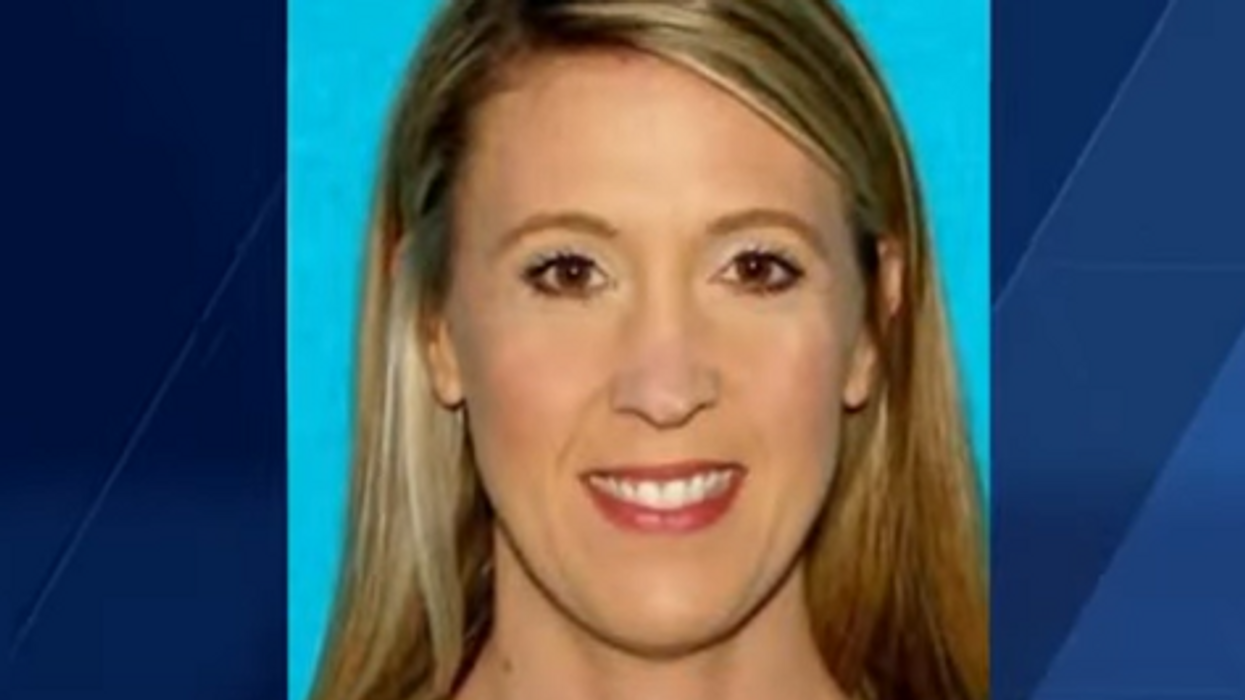
© 2024 Blaze Media LLC. All rights reserved.
PBS NewsHour Lambasted by Complaints for Including Climate Skeptic Perspective
September 19, 2012
"objections were not with what I said, but rather that I was allowed to speak at all."
On Sunday, PBS NewsHour included a segment on climate change with recently reformed climate skeptic Richard Muller and current "pragmatic climate skeptic" Anthony Watts. Since then, PBS has been criticized for creating "confusion" on the topic of man-made climate change and Watts has says he's received an "unprecedented" amount of hate.
As PBS puts it (via the segment's transcript) the "world of climate change" is an environment "where most scientists and a much smaller group of skeptics remain bitterly divided over their assessment of what’s happening to the planet."

PBS covers Muller, a physicist for the University of California-Berkeley who was skeptical of climate change data until he began the Berkeley Earth Surface Temperature Project. Armed with what he considered objective data from the project, Muller came out in an op-ed to the New York Times as a reformed climate skeptic who now believes "humans are almost entirely the cause" of climate change. PBS' NewsHour corespondent Spencer Michels reporting the segment then brings in Lawrence Berkeley National Laboratory's William Collins, who speaks on behalf of what most climate scientists believe of current temperature and other relevant data regarding climate change. Michels then brings on Watts, who maintains the climate skeptic blog Watts Up With That.

Watts said in the interview, "Yes, we have some global warming. It’s clear the temperature has gone up in the last 100 years, but what percentage of that is from carbon dioxide and what percentage of that is from the changes in the local and measurement environment?"
He also shared his views on where some objectivity could be lost in the world of global warming research.
"There are whole divisions of universities that are set up to study this factor. And so there’s lots of money involved," he said. "And so I think that there’s a tendency to want to keep that going and not really look at what might be different."
Watch the 10-minute segment:
For including these men as guests and talking about an angle of climate change that, as Watt's just put it, "might be different," NewsHour has been receiving criticism. At the time of this posting, the web page with the segment and transcript has more than 60 comments and a blog post with an extended interview from Watts has more than 320 comments.
Forecast the Facts writes that PBS "provided an unchecked platform for Anthony Watts, a virulent climate change denier funded by the Heartland Institute." It has launched an online petition to have the segment investigated for how it "came to be aired and [to] recommend corrective action to make sure a journalistic abomination like this never happens again." Media Matters wrote that the segment "propagates confusion on climate change." Think Progress calls it "false balance" and the "worst climate story of the year."
The Huffington Post points out that some believe the very existence of a global warming debate and those denying evidence for man-made climate change is because it is "manufactured with motivation from fossil fuel industry players." Both Media Matters and Forecast the Facts point to Watts having associations with The Heartland Institute. It should also being noted that PBS does point out the Koch Foundation and The Heartland Institute helped fund Muller's Berkeley Earth Surface Temperature Project, which lead him to "convert" from climate denaliasm to believing that warming is human-caused (but Muller has also been criticized by climate scientists as well as skeptics for bringing out his findings in an op-ed instead of a peer-reviewed journal). Of the Heartland Institute, the Huffington Post writes:
It is also well known that Heartland has received significant financial contributions from the oil and gas industry. The New York Times reported that Exxon Mobil"contributed more than $600,000 to Heartland" between 1998 and 2006.
With this, some contend a connection with the institute could influence views on the connection between fossil fuels and carbon dioxide and their effect on global warming.
Of the criticism Watts received, he wrote on his blog "objections were not with what I said, but rather that I was allowed to speak at all."
Michels, the PBS correspondent, felt compelled Tuesday to write a blog post on the uproar that ensued over his coverage of the topic and the extended interview with Watts. He wrote that PBS thought it would "provide a chance for viewers to hear more about the skeptical perspective than we have done recently," noting previous reporting over the years of an "expansive view from the overwhelming majority of climate scientists who say climate change is real." Still, with complaints sent in from viewers and readers asking that more than the skeptic perspective be shared, Michel's posts the National Oceanic and Atmospheric Administration's response and defense of its warming data.
Michels ends with "we don't expect this to be the last word in our own coverage. But we hope we've provided a bit more perspective to yesterday's post and the broadcast piece."
Related:
- Obama Says Climate Change 'Not a Hoax,' But Will the Issue Feature Prominently in This Election?
- Study Concludes Conspiracy Theorists, Free-Market Thinkers Likely to Be Global Warming Deniers
- 'Real News From TheBlaze': U.N. Climate Change Activists Put Heat on U.S.
(H/T: Russel C.)
Want to leave a tip?
We answer to you. Help keep our content free of advertisers and big tech censorship by leaving a tip today.
Want to join the conversation?
Already a subscriber?
more stories
Sign up for the Blaze newsletter
By signing up, you agree to our Privacy Policy and Terms of Use, and agree to receive content that may sometimes include advertisements. You may opt out at any time.
© 2024 Blaze Media LLC. All rights reserved.
Get the stories that matter most delivered directly to your inbox.
By signing up, you agree to our Privacy Policy and Terms of Use, and agree to receive content that may sometimes include advertisements. You may opt out at any time.


